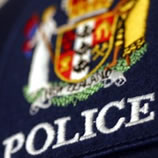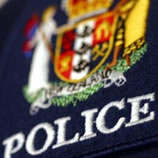Source: Tairawhiti District Health
Police Commissioner Richard Chambers has acknowledged nine new Detector Dog Handlers and their dogs from across the Pacific and New Zealand who graduated at the Dog Training Centre in Trentham this afternoon.
The teams celebrated the occasion in front of whānau and friends, executives from New Zealand Police with officials from the New Zealand Customs Service, Aviation Security Service New Zealand, and New Caledonia Customs.
Commissioner Chambers, who is currently in the Pacific meeting local police leaders, congratulated them all on their achievements.
“Our New Zealand and Pacific Detector Dog teams play a crucial role in all kinds of policing, at our borders and within our communities.
“They are remarkable at what they do in detecting cash, firearms, and narcotics and some detecting explosives.
“These graduates have worked hard to obtain this operational qualification, and they’ll keep learning and developing with experience and time on the street and at their borders.”
Today’s graduates are from Customs agencies in New Zealand, Samoa, New Caledonia, and Fiji with one dog team bound for New Zealand’s Aviation Security Service.
The police graduates are from New Zealand, Tonga and for the first time ever, a policewoman has graduated as a dog-handler from the Fiji Police Force.
They will be welcomed into their various roles in the Pacific, and around New Zealand, very shortly,” says Commissioner Chambers.
Customs Deputy Chief Executive International and Governance, Joe Cannon, highlighted the importance of this long-running Pacific Detector Dog Programme and its role in building ongoing enforcement capability in the Pacific region.
“Detector dogs are a valuable enforcement tool in combating transnational and serious and organised crime syndicates who continue to target Pacific countries. We know that where there are illicit goods, there is criminal activity – and detector dogs are trained to help track them down.
“For us in New Zealand and our partners in the Pacific, having this additional capability puts us all in a better position to defend our borders.
This programme also highlights what can be achieved when countries and agencies work toward a common goal, which in this instance is protecting our borders and keeping our communities safe.”
Inspector Todd Southall, National Coordinator Police Dogs and Manager of the Pacific Detector Dog Programme says, “These incredible dogs are trained to detect drugs, explosives, firearms and cash and it’s a proud day for all teams, both experienced and new when they qualify.”
“This ceremony marks the end of a demanding few weeks training to become an operational team. It takes patience and perseverance to get through the training programme.
“There is high demand for detector dog teams across the Pacific, so planning will continue as we manage more courses throughout the year.
“In the meantime, best wishes to all our new teams as they begin their operational lives in New Zealand and throughout the Pacific,” says Todd.
Established in 2018, the Pacific Detector Dog Programme (PDDP) is jointly managed by the New Zealand Police and New Zealand Customs Service. It is funded by New Zealand’s Ministry of Foreign Affairs and Trade.
ENDS
Issued by Police Media Centre




